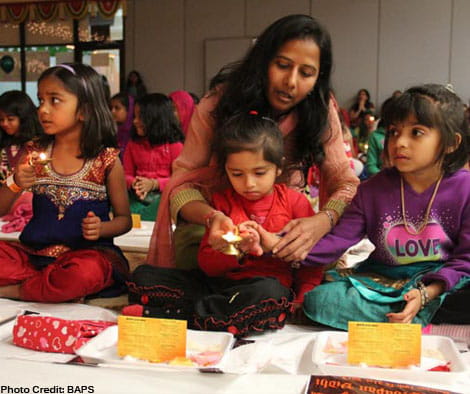
Shutterstock.com
Every religion has adherents that pick and choose which taboos to follow. Some Christians are sexually active long before marriage. Some Jains see mosquitos or other disease-carrying pests as an exception to the rule of “cause no harm.” Some Jews have very flexible definitions of what is “kosher.”
How carefully and strictly a person keeps to religious taboos is a decent way to judge their devotion to their religion. Taboos can be difficult to follow and pose an imposition on the adherent. In such cases, many otherwise pious people find justifications for breaking the taboo. The mental gymnastics required are sometimes quite impressive, but they find a rationalization for why it is acceptable for a Muslim to eat meat that they are not sure is halal or why oral sex is not really sex so it does not count as a Christian having pre-marital sex. The deeply devout or stubbornly traditional devotees, however, will hold fast to their beliefs and avoid what is taboo regardless of how difficult that might make their daily lives.
Hinduism is no different from other religions in this respect. Hindus have a set of taboos that they follow to varying degrees. Some Hindus may take the prohibitions as general guidelines. Others see the taboos as hard and fast laws. The breakdown is also similar to other religions. The more devout and the more traditional households tend to work harder to avoid what is forbidden. The list of taboos varies between Hindu traditions and geographic region and occasionally there are sharp contradictions. For example, in some places it is forbidden for a person to marry outside of their caste. In other areas, people are not allowed to marry within their caste. There are some taboos, however, that tend to be widespread and commonly followed. Here are six things a devout Hindu should never do.
Harm or Eat Cows
Cows are sacred in Hinduism for a variety of reasons. They are associated with the goddesses Mother Earth and Kamadhenu. Nandi, the god Shiva’s steed, is a bull and a subject of worship in his own right. Krishna is known as bala-gopala, or “child who protects the cows,” and cows are seen as symbolizing Hinduism itself. With all the sacred associations surrounding cows, it is not a surprise that Hindus are forbidden from eating beef. Cows are also protected for pragmatic reasons. Milk, buttermilk and ghee are all essential to Hindu worship. Furthermore, yogurt is a common ingredient in many dishes, and cow dung is still sometimes used as fuel.Many Indian cities have herds of cows that wander freely, much to the consternation of commuters. These cows are often protected by law which makes them hard to remove from congested and populated areas.
Pre-Marital Sex
Prohibitions against sex outside of marriage are common in most religions. Adultery is, unsurprisingly, forbidden, given the intense emotional pain it causes a person’s partner and children. Taboos against pre-martial sex, however, were often born out of a need to be certain of the paternity of any children born to a couple. Matrilineal descent was almost impossible to fake unless a family successfully bribed anyone and everyone who was involved with the delivery of a child. There was, however, no way to prove paternity beyond making sure that a woman only had sex with one man. With the invention of blood typing and DNA sequencing, there are now ways to prove paternity. These tests combined with changes in inheritance laws and steps toward equality for women have led to many religions placing much less emphasis on the taboos of pre-martial sex. Most Hindus, however, still take this taboo very serious. Neither men nor women are allowed to have sex outside of marriage, and there is a massive social and religious prohibition against children born out of wedlock as a result.Feet
Feet are seen as unholy in Hinduism. As such, most temples require that people take off their shoes before entering. Some temples have relaxed this rule, but the majority still insist on worshippers and visitors alike entering barefoot. For the same reason, most Hindu festivals require people to take off their shoes before entering a ritual space.It is also taboo for a person’s feet to touch anything that might be holy including images of deities, musical instruments and books. Books are seen as aspects of the beloved Goddess of Learning, Saraswati. For a person to touch her with their feet is extremely disrespectful.
Organ Donation
Hindus are among several religions that have taboos against organ donation. Judaism, Islam and some Christian denominations all share this prohibition as well, though certain groups have begun speaking out about the need to loosen this ban. Hindus believe that those who donate their organs will be born without those organs in the next life. It is in part due to such religious prohibitions that so few people agree to be organ donors upon death leading to the massive shortage of donated organs and a truly colossal waiting list of people hoping and praying for a lifesaving gift.Sex Segregation
Segregation of genders is decreasing in India and among Hindu families, but it is still common in more rural areas and in traditional households. Gender roles are strictly prescribed, and the sexes are not to be mixed. As a result, many schools are segregated, and dating is nearly unheard of in some areas. Arranged marriages are still common even in more modernized cities, though the practice is becoming less common. Modest dress is expected in public in most places with men wearing pants even in the heat and most women wearing beautifully decorated head coverings.Menstruation
Menstruation remains a massive taboo in Hinduism. Menstruating women are considered to be unclean and are not allowed to enter temples, the puja room of their home, touch holy books or worship. Many traditional households still ban menstruating women from touching food or cooking, and most girls on their period are told to avoid certain foods. In some places, women are not allowed back in the house until their period is over, or on the flip side, girls are confined to the home while they are menstruating. This leads to a great deal of shame, loss of work and many girls dropping out of school.Taboos surrounding menstruation are found in almost all religions, but most modern societies have come to understand that women are not “unclean” when menstruating as long as they keep up their basic hygiene. In India, however, many women lack the necessary resources to deal with their periods and may use items such as newspaper or ash to absorb the blood. The menstrual taboo makes this issue difficult to address in Hindu-majority countries, and so many women continue to suffer and risk infection each month.
Taboos are found in every religion. Some, such as taboos against extra-martial sex, are common among religions. Others, such as eating beef, are specific to a single faith. Taboos may seem strange to outsiders, but many people do not even realize that they are unconsciously following a set of religious prohibitions. Taboos can in part be recognized when they are challenged. Most people will find themselves recoiling from the broken taboo and, if asked, will have no logical reason why it bothers them. They will just have the deep, visceral sense that something is terribly wrong.

